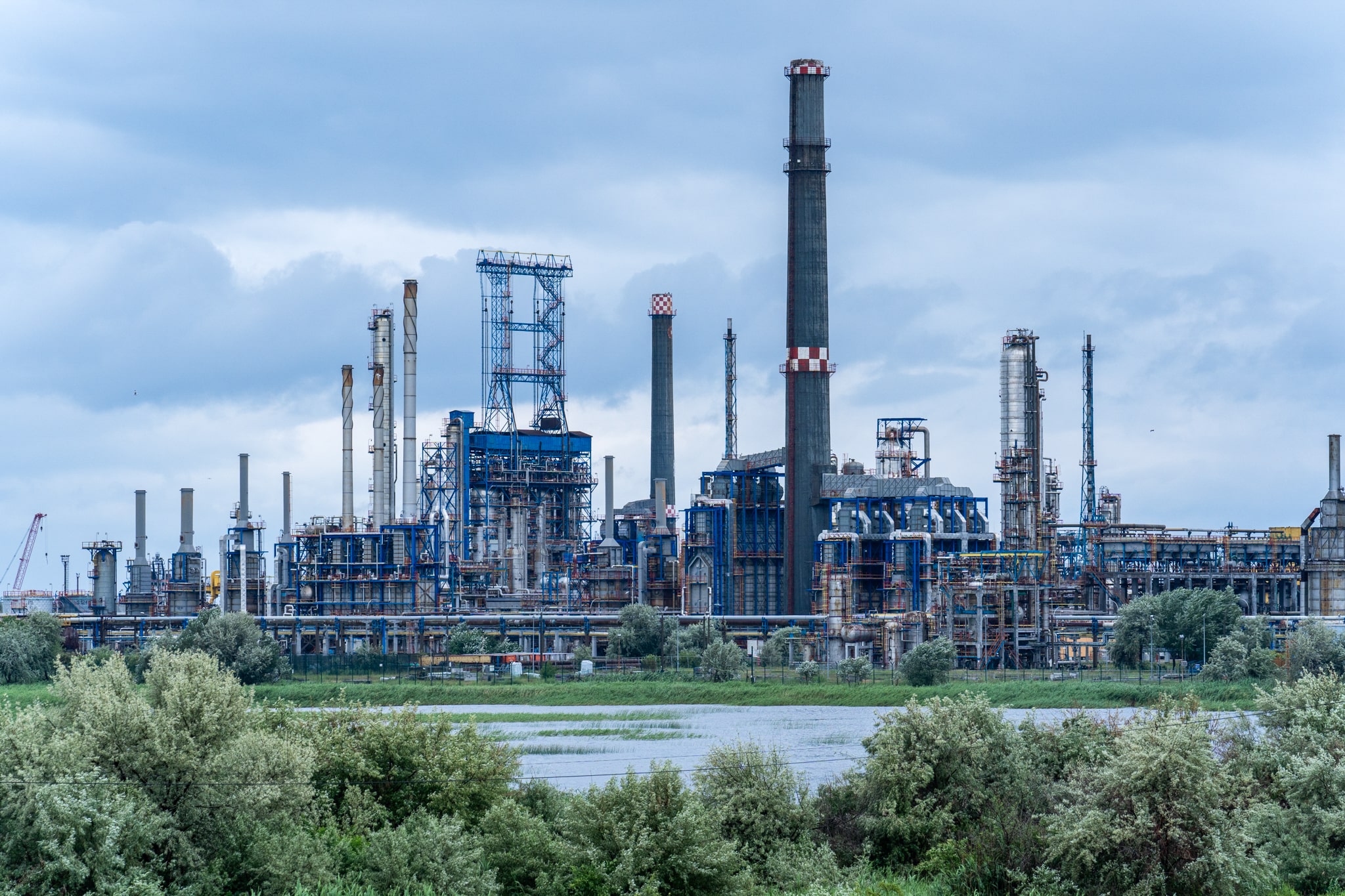
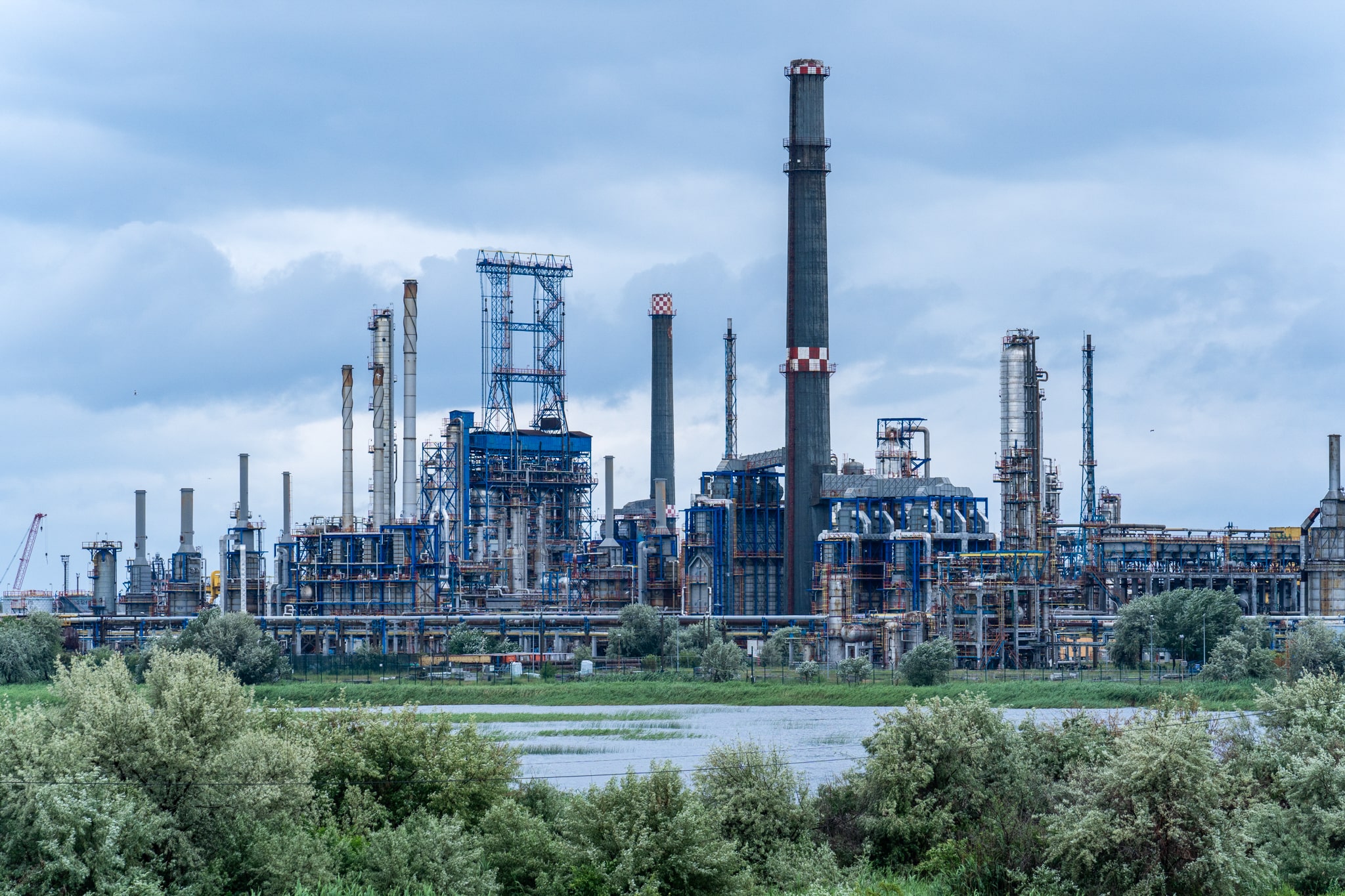
Sustainability
For us, sustainability is more than just a principle—it is an integral part of our operations and a mindset that influences both corporate and individual decisions. Our commitment to sustainability represents an ongoing effort to improve our performance in various areas—environment, human resources, community engagement, and forward-looking plans. As part of KMG International, we follow top-tier international standards and proudly contribute to the United Nations Sustainable Development Goals.
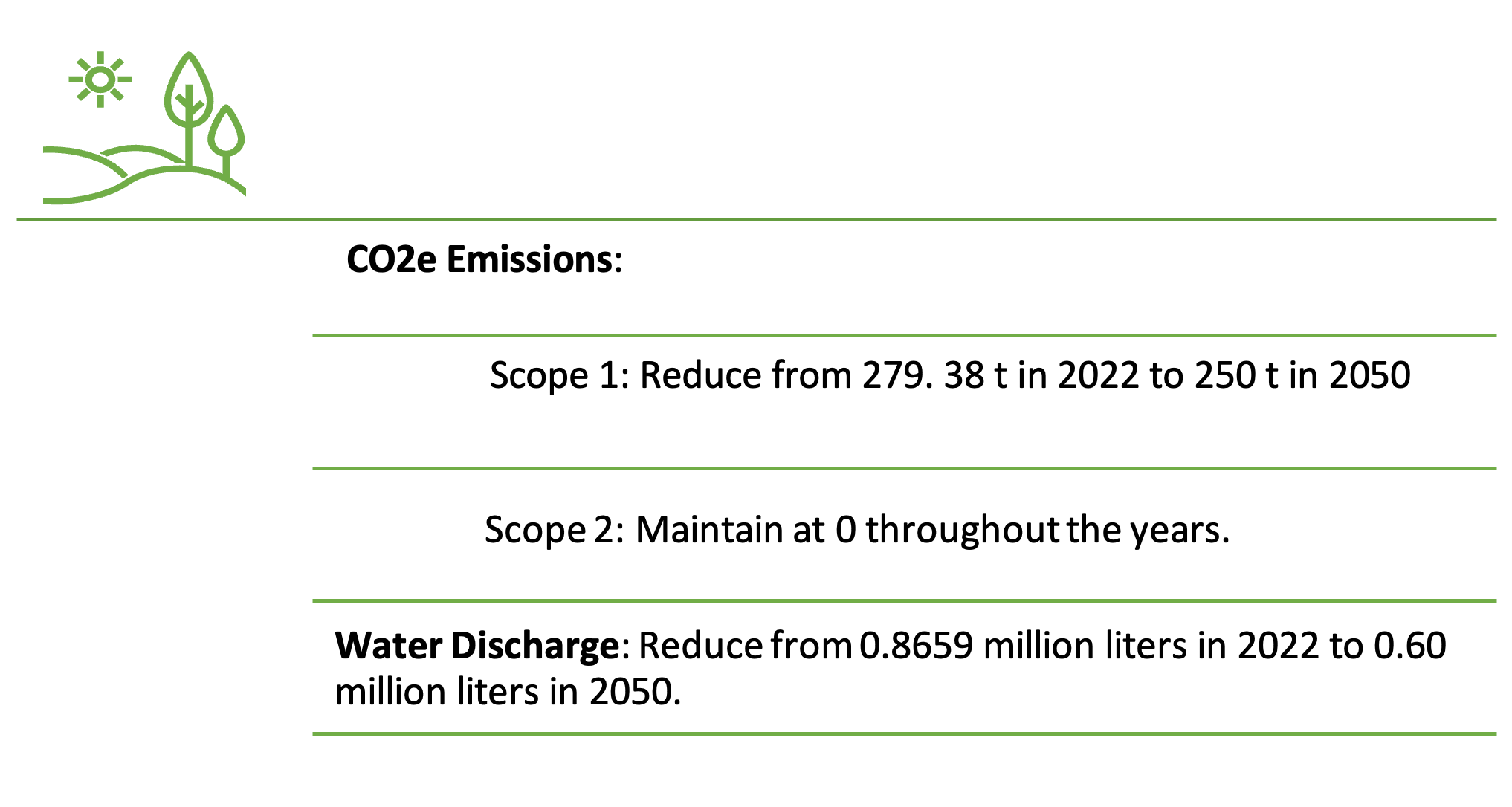
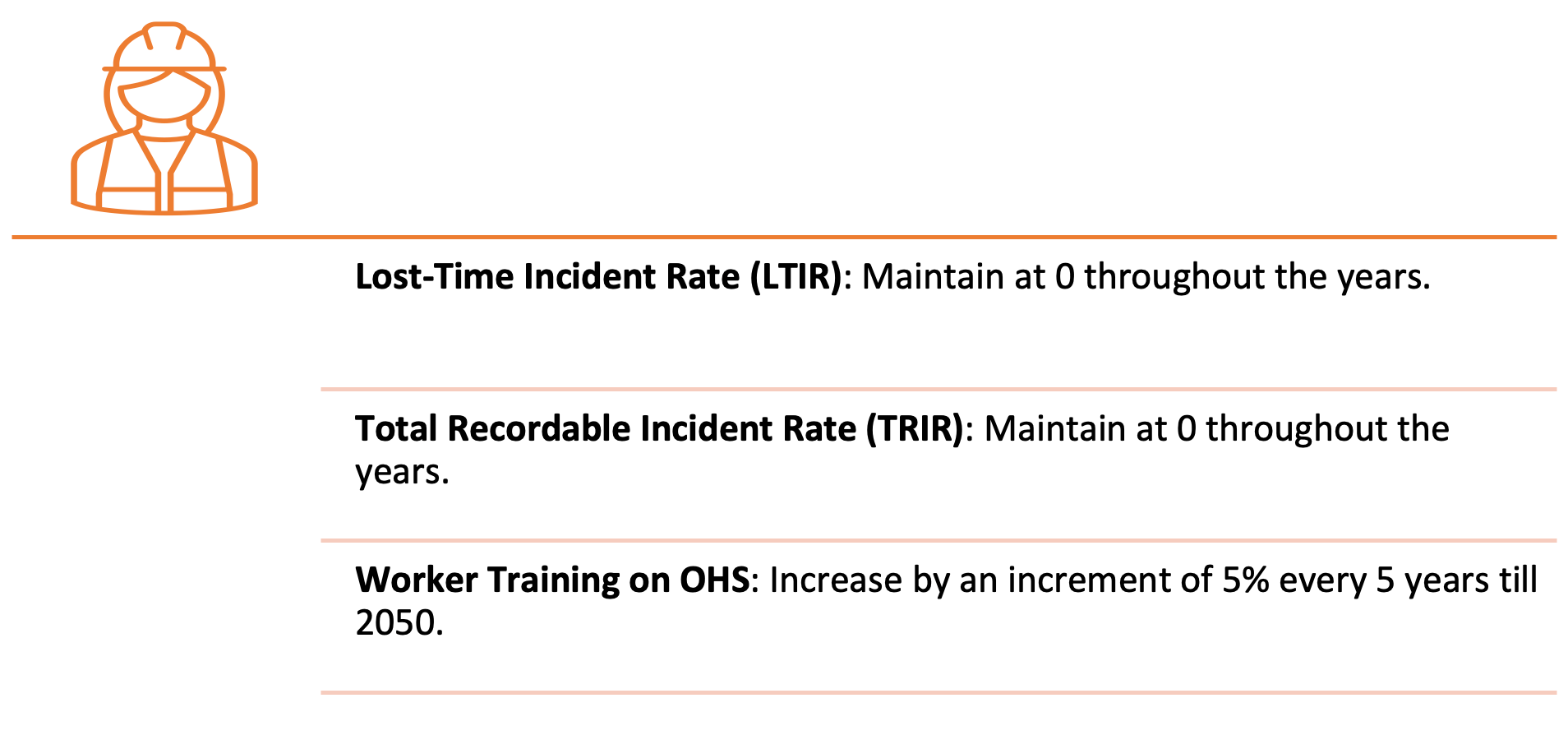
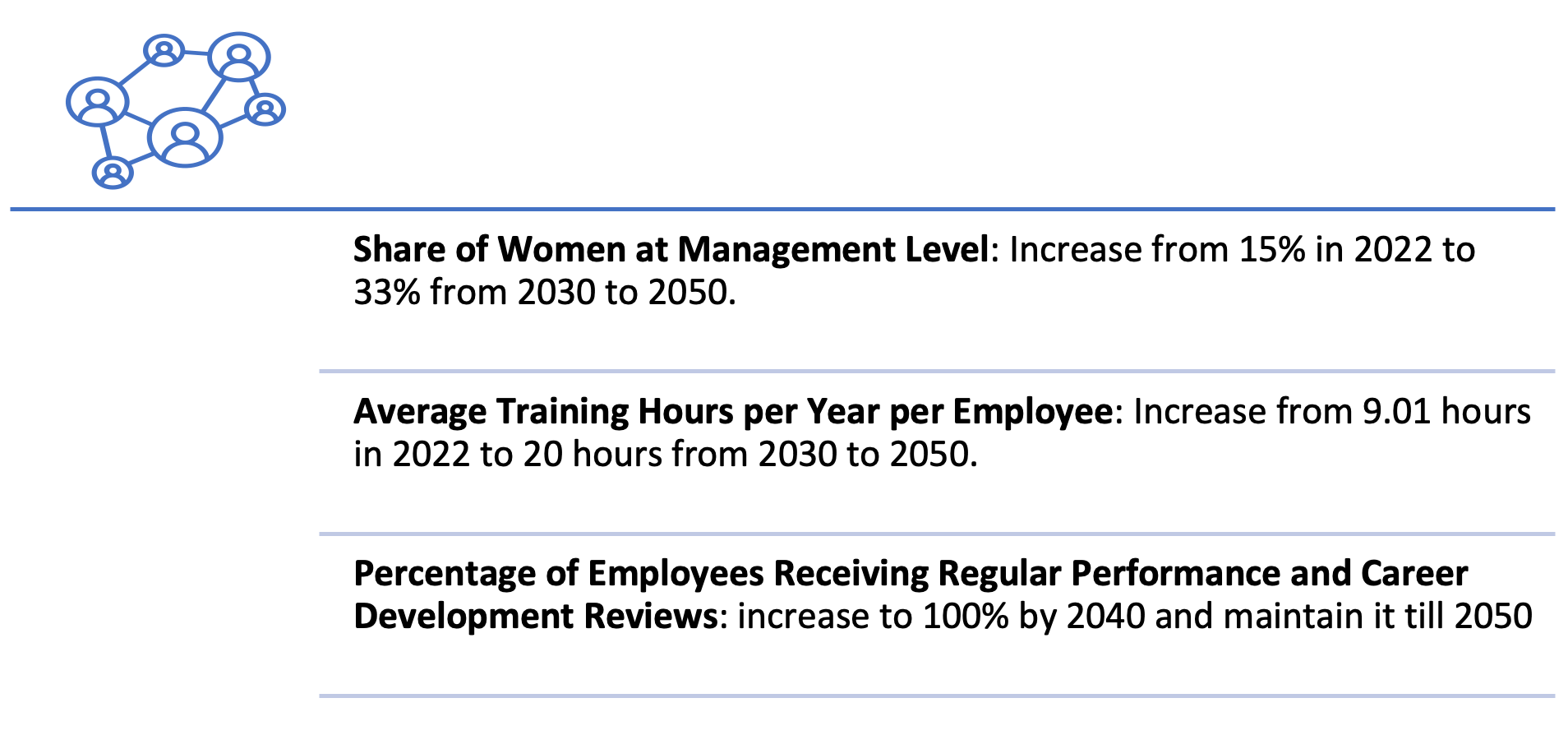
Our operations are marked by a strong adherence to fair labor practices, in compliance with all relevant workplace, employment, privacy, and human rights legislation. Moreover, we uphold the principles of the Universal Declaration of Human Rights.
When it comes to ethics, human rights, counsel and grievance mechanisms, anti-corruption, anti-bribery, and risk management, we have established policies. These policies are not only applicable to our employees but also extend to all our stakeholders, reflecting our commitment to a holistic approach to sustainability and ethical practices.
Our Code of Ethics and Business Conduct promotes ethical values and principles, and may be read here:
| Code of Ethics and Business Conduct | Download |
| Supplier Code of Conduct | Download |
| Antibribery Policy | Download |
We have committed to operating in a way that respects the environment and protects the water, air, and land in our areas. We continually work to improve our environmental performance, reduce our environmental impact, and maximize the effective use of resources.
We aim to operate according to the best available practices, and this is reflected in the decisions we make.
Rominserv environmental programs are in accordance with international standards such as ISO 14001 and ISO 50001.
Some of the objectives included in our Environmental Management Plan address the following: Zero incidents with environmental impact, continuing the implementation of the Waste Reduction Action Plan, selective waste collection, etc.
Legal requirements and other requirements to which Rominserv subscribe are included in the setting up, implementation, and maintaining our environmental management system.
Our environmental policy and procedures cover areas such as training, record management, inspections, objectives, and monitoring.
Rominserv subcontractors must comply with all environmental protection requirements imposed by the Contract and the SSM-SU-Environment Convention.
The total water used in 2023 was 1.11 ML (water used = water withdrawal - water discharged). The water used by Rominserv is supplied based on utility supply contracts concluded between Rompetrol Rafinare and Rominserv for the Petromidia and Vega work points. Wastewater is discharged into the sewer system of Rompetrol Rafinare. Drinking water is provided by private suppliers.
Rominserv ensures the management of all waste generated within the organization in accordance with a Waste Management Plan, for each work point, designed to establish clear roles and procedures, while providing full compliance with the applicable legal provisions. Total waste generated in 2023 - 105.42 tones, out of which diverted from disposal 7.16 tones and 98.26 tones directed for disposal.
No spills and no grievances from the local communities were recorded during 2023.
Emissions
In 2023, Rominserv disclosed its greenhouse gas emissions under Scope 1 as totaling 314.38 tons of CO2 equivalent. The primary contributors to these emissions were from steam and hot water production and the organization's vehicle fleet. Additionally, a small portion of emissions came from gas used for heating. Scope 2 emissions, which represent indirect GHG emissions from purchased electricity and other energy sources, were reported as zero for the years 2021 through 2023, indicating no significant indirect emissions from these sources.
The emissions intensity of Rominserv, which measures the emissions in relation to its fiscal value, showed a variation over the years, with a notable decrease in 2023. This change signals Rominserv's ongoing commitment to improving its environmental footprint by effectively managing and aiming to reduce its GHG emissions in relation to its business operations.
The diversity and stability in our human resources reflect our belief system and organizational culture on which we base our activities.
At the end of 2023, Rominserv had a headcount of 558 people, and we are committed to creating for our employees a respectful, free from discrimination workplace where they feel included. Anti-discrimination provisions are included in the collective bargaining agreements and in the internal regulations in force.
No discrimination incidents were reported in 2023.
Our commitment to safety extends beyond our employees, to our partners and suppliers, our customers, and the communities in which we carry out our activities. Our risk-based approach follows a clear set of standards aligned with national and international regulatory requirements.
Rominserv has contracts in place with external prevention and protection services for the implementation of HSE requirements, SEVESO III and firefighting system assessments.
Rominserv recorded no fatalities, no OSH or road accidents and no work-related injuries.
- 0 LTIR (lost time injury rate);
- 0 TRIR (total recordable injury rate);
- 0 car accidents;
- 0 fatalities.
See more about our performance in the 2023 Group Sustainability Report.
Our projects are strategic investments within the community that contribute to its long-term growth and local development and provide the services and facilities needed for a good quality of life. We meet our local stakeholders on a regular basis, from local authorities to NGOs, in order to understand their needs, expectations and challenges. By listening to our partners and engaging with them, we make sure that our endeavors meet the needs of each community and help them go further.
Our pillars of contribution and community development are education, environment protection and health.
Among our projects:
In 2023, Rominserv supported the development of the emergency intervention system by acquiring state-of-the-art equipment for SMURD helicopters. This equipment allows for a wide range of investigations at the intervention site and advanced digital communication with medical centers across the country. The equipment will serve helicopters in Bucharest, Mureș, Brașov, Craiova, Galați, Constanța, Iași, Timișoara, Caransebeș, and two additional medical aircraft that are set to join SMURD's fleet.
The portable ultrasound allows for rapid patient assessment at the intervention site, providing high-quality images of critical medical emergencies, especially traumatic ones, which can then influence both therapeutic and transportation decisions. The images can be digitally externalized and transmitted to hospitals and specialist doctors as needed.
The portable analyzer enables the intervention team to perform a wide range of essential tests for critically ill patients with just three drops of blood collected from the patient, providing results on the spot.
In Prahova, we invested in the construction of four new playgrounds in partnership with the Ploiești City Hall, thus offering the community and children a 1,269 square meter area with numerous high-quality play facilities. These playgrounds are designed to blend harmoniously into the urban landscape, paved with elastic rubber tiles, equipped with modern urban furniture and colorful play equipment, all in full compliance with current quality and safety standards.
The Chess in Schools project is part of our educational initiatives dedicated to a sustainable future, offering more development opportunities for the communities where the company operates.
Chess in Schools was initiated in 2021, and includes physical and online chess lessons, visits and open classes, and national chess competitions for children. The company supported the creation of a chess textbook for first and second-grade students, printed in over 58,000 copies and distributed to children in both urban and rural areas nationwide.
The main objective of the Chess in Schools project is to promote chess among young people and introduce it as a subject in the school curriculum. Through this mind sport, children develop skills such as analytical and strategic thinking, decision-making ability, concentration, and anticipation from a young age.
